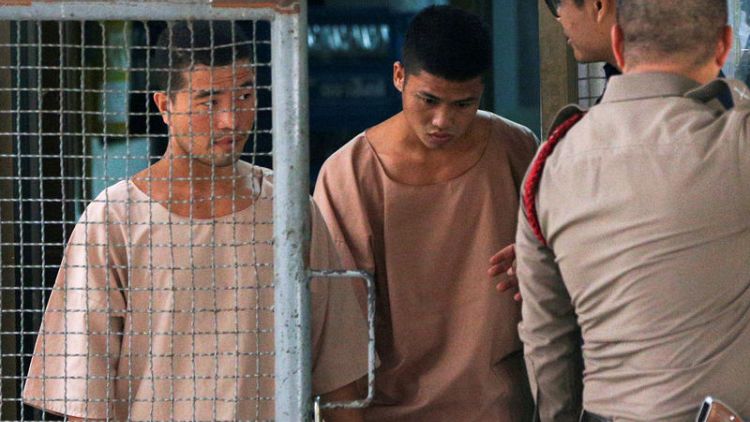By Panarat Thepgumpanat
BANGKOK (Reuters) - Thailand's Supreme Court on Thursday upheld the death sentences of two migrant workers from Myanmar for the murder of two British backpackers that drew world attention to the tourist island of Koh Tao.
The September 2014 murders sullied Thailand's image in the tourism industry, which makes up about a tenth of its economy.
The workers, Zaw Lin and Win Zaw Htun, were sentenced to death for the murder of David Miller, 24 and the murder and rape of Hannah Witherridge, 23, on the diving haven of Koh Tao.
Police said Witheridge had been raped and bludgeoned to death and Miller had suffered blows to his head.
A panel of two Supreme Court judges ruled on Thursday to uphold the death sentences handed down by lower courts, saying the men had been found guilty of murder and rape on the basis of evidence and forensic results.
The men displayed no emotion as they listened intently to a translator while the verdict was read at a court in the province of Nonthaburi, just north of Bangkok, the capital.
"Zaw Lin and Win Zaw Htun said afterwards that they are sad and worried by the verdict, because they said they did not commit the crime," the court translator, Aye Mar Cho, told Reuters afterwards.
Their lawyer said they would seek a pardon from Thailand's king.
"We will petition for royal pardon within 60 days so they would not be executed," the lawyer, Nakhon Chompuchart, told reporters.
Thai law grants those sentenced to death 60 days to seek such a pardon, but if the king dismisses the request an execution can go ahead.
A murder convict was executed in June last year by lethal injection, but for the previous nine years all death sentences had been commuted by royal pardon.
Zaw Lin and Win Zaw Htun were convicted and sentenced to death in 2015, a verdict upheld by the appeal court in 2017.
A pro-bono legal team defending the men has said evidence collected by police was substandard. The lawyers have also said they were tortured and coerced into making confessions they later retracted.
"DNA and forensics evidence ... was in my opinion fundamentally flawed and should always have been considered unreliable, when considered against international standards," said labour activist Andy Hall.
The Supreme Court on Thursday rejected accusations of torture and ruled that DNA evidence linked the workers to the crime.
(Writing by Patpicha Tanakasempipat and Panu Wongcha-um; Editing by Kay Johnson and Clarence Fernandez)
